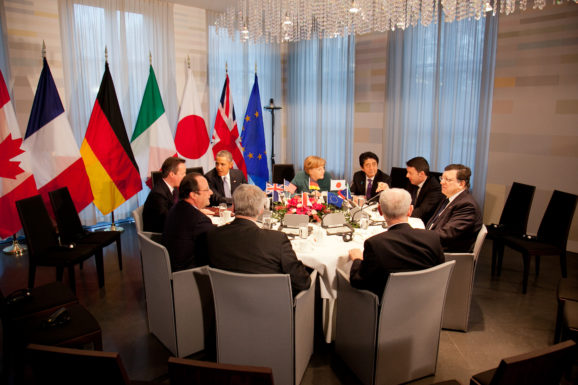The G7 (Group of 7) is comprised of many of the world’s biggest economic powers. The leaders of these nations have convened for the G7 Summit annually since the 1970s. The members include the UK, USA, Canada, Japan, Germany, France and Italy and their values align as open, democratic, outward-looking societies. This year the summit runs from June 11-13, in Cornwall, England.
In the past, the Presidency of the G7 worked to combat issues such as tax evasion, healthcare, education and strengthening the global economy. The aim of this year’s summit is to lead a global recovery following the pandemic and to strengthen resilience against future pandemics. The British Prime Minister will be leading the discussion and urging the G7 – along with guest leaders from Australia, India, South Korea, and South Africa – to intensify cooperation to provide their citizens with safety and prosperity.
This year’s summit will prioritize the issues that were highlighted amidst the pandemic. The goals include the promotion of free and fair trade, confronting climate change, preserving Earth’s biodiversity, and ending the coronavirus pandemic.
Prime Minister Boris Johnson is planning to call on the leaders of the G7 to commit to vaccinating the entire world by the end of next year. The UK has led vaccine efforts through the development and production of the Oxford-AstraZeneca vaccine, which makes up 1 in 3 vaccines administered around the world. The UK also distributed the vaccine to developing countries by helping to establish the international COVAX group, and by encouraging other countries to do the same. Johnson wants to urge other countries to step up and do their part to assist the vaccination process across all nations. This will include increasing the manufacture of vaccines, reducing barriers that prevent international distribution, and sharing the surplus of vaccine doses collectively and through COVAX.
Climate change is currently at a tipping point, and in order to tackle this, the G7 group plans to transition their economies to net zero carbon emissions, and to financially support this transition in developing countries. The G7 has recently endorsed the Task Force on Climate Related Financial Disclosures (TCFD), which makes climate reporting for companies mandatory. While it is unclear how long it will be before these disclosures are made mandatory, Hong Kong, the UK, New Zealand and Switzerland have all adopted the requirement of TCFD disclosures.
Learn more about the G7 Summit here.
